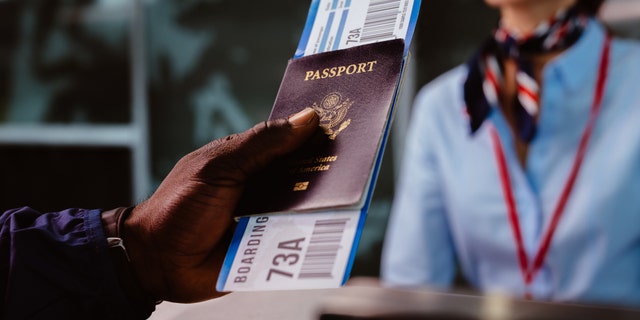No products in the cart.
The demand for air travel continues to plummet amid the ongoing COVID-19 pandemic, with airlines slashing routes and scaling back on service.
TRAVEL AMID THE CORONAVIRUS: WHAT YOU NEED TO KNOW
Those still planning to fly, however, may be wondering about the risks associated with air travel, or what precautions the major airlines are taking to keep passengers safe.
What do I need to know?
The U.S. Centers for Disease Control and Prevention (CDC) and the Department of State have been updating their travel warnings as the virus continues to spread to regions across the globe. Before planning an itinerary — or when deciding whether to cancel — passengers should check the CDC’s Health Notices and the State Department’s Travel Advisories for any guidance on where or where not to visit.
Several airlines have also suspended or altered their service to specific airports, regions or countries. Passengers can contact travel providers directly to ensure there won’t be any changes in service to your destination; if travel has been altered or changed, or passengers wish to postpone or cancel altogether, many U.S. airlines are extending travel waivers for ticketholders scheduled to fly to any destination amid the ongoing pandemic, without incurring additional fees.
The State Department has a Smart Traveler Enrollment Program (STEP), which keeps passengers aware of any changes in the safety conditions of a particular destination.
CLICK HERE TO SIGN UP FOR OUR LIFESTYLE NEWSLETTER
What are the risks of contracting coronavirus on a flight?
The CDC currently puts the risk of infection at “low” when flying between areas that are not experiencing “sustained community transmission,” but urges travelers to always maintain best practices when it comes to safety and hygiene on flights.
“Because of how air circulates and is filtered on airplanes, most viruses and other germs do not spread easily on airplanes,” the CDC writes. “Although the risk of infection on an airplane is low, travelers should try to avoid contact with sick passengers and wash their hands often with soap and water for at least 20 seconds or use hand sanitizer that contains 60–95 [percent] alcohol.”
The CDC adds that its guidelines for risk assessment do not cover all potential “exposure scenarios,” so passengers should always conduct their own individual risk assessments before embarking on their journeys.
Are airlines disinfecting the planes?
As the outbreak continues to spread, major airlines have detailed their efforts to ensure that plane cabins remain clean.
Delta, for instance, recently released footage showing off the company’s fogging procedure, which “disinfects surface areas that we all touch in the aircraft.”
FOLLOW US ON FACEBOOK FOR MORE FOX LIFESTYLE NEWS
American Airlines has confirmed a “detailed 30-point cleaning package” for all international flights or those with “additional time on the ground.” All planes also undergo regular deep-cleanings, the airline said.
United, meanwhile, assures guests that it wipes down and disinfects all touchpoints; the carrier also plans to incorporate a fogging procedure as well.
Many other U.S-based airlines, including Southwest and Spirit, have shared their sanitization efforts online as well.
How can I clean my personal area?
Respiratory illnesses, like coronavirus, generally spread via a person coming into contact with an infected persons’ saliva or mucus. Droplets from a sneeze or cough can land on surfaces, such as tray tables or arm rests, and potentially infect passengers sharing the enclosed space.
To minimize your risk while flying, passengers can use a pack of antibacterial wipes with alcohol to wipe down everything in their personal areas, including the tray table, armrests, seatbelt handle, air vents and call buttons. Disinfecting these “high touch” areas is a surefire way to fight germs, according to Ohio State University infectious disease specialist Debra A. Goff, Pharm.D., who spoke with Reader’s Digest. The same cleaning practice can be applied to train or bus seats.
If travelers do touch shared or potentially germ-ridden surfaces, they should avoid touching the eyes, nose or mouth until washing their hands with soap and water for at least 20 seconds.
The TSA also allows passengers to bring alcohol-based hand sanitizers in carry-on-luggage, if the containers measure less than 3.4 ounces.
Should I cancel my flight?
Depending on where you’re going — and who you’re going with — the CDC recommends planning cautiously or making the best decision for the health and wellbeing of yourself, your traveling companions and those around you.
For instance, the CDC recommends travelers consider the risk of COVID-19 at their destinations, and how closely you plan to interact with persons in places with higher rates of “community spread.” The CDC also urges travelers to be wary of large gatherings (concerts, conferences), public spaces (shopping malls, movie theaters) or closed-in spaces with little circulation (public transportation), to minimize the risk of becoming infected by sick individuals.

As always, travelers should heed the advice of the State Department, the CDC, and abide by any travel advisories set in place by the U.S. government.
(iStock)
If travelers are departing from a place with community spread, the CDC also advises that they consider the risk of passing it off to others at points along the journey.
As always, travelers should heed the advice of the State Department, the CDC, and abide by any travel advisories set in place by the U.S. government.
CLICK HERE FOR COMPLETE CORONAVIRUS COVERAGE
Fox News’ Michael Bartiromo, Alexandra Deabler, Janine Puhak, Michael Hollan and Madeline Farber contributed to this report.


